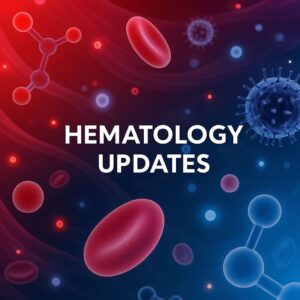🔬 TP53 CLONAL HEMATOPOIESIS





🧬 MYELOID NEOPLASIA






🩸 SICKLE CELL THERAPIES
📜 Novel, potent, and orally bioavailable LSD1 inhibitors induce fetal hemoglobin synthesis in a sickle cell disease mouse model (Blood, 2025) https://lnkd.in/ddn5qAdK
➡️ New reversible LSD1 inhibitors increased fetal hemoglobin (HbF) and γ-globin in SCD mouse models, improving disease symptoms.
➡️ Combination with BRD4 degraders mitigated side effects commonly associated with LSD1 inhibition.
💡NOVELTY💡: Represents a promising therapeutic strategy to induce HbF in β-globinopathies while overcoming toxicity challenges of previous LSD1 inhibitors.
